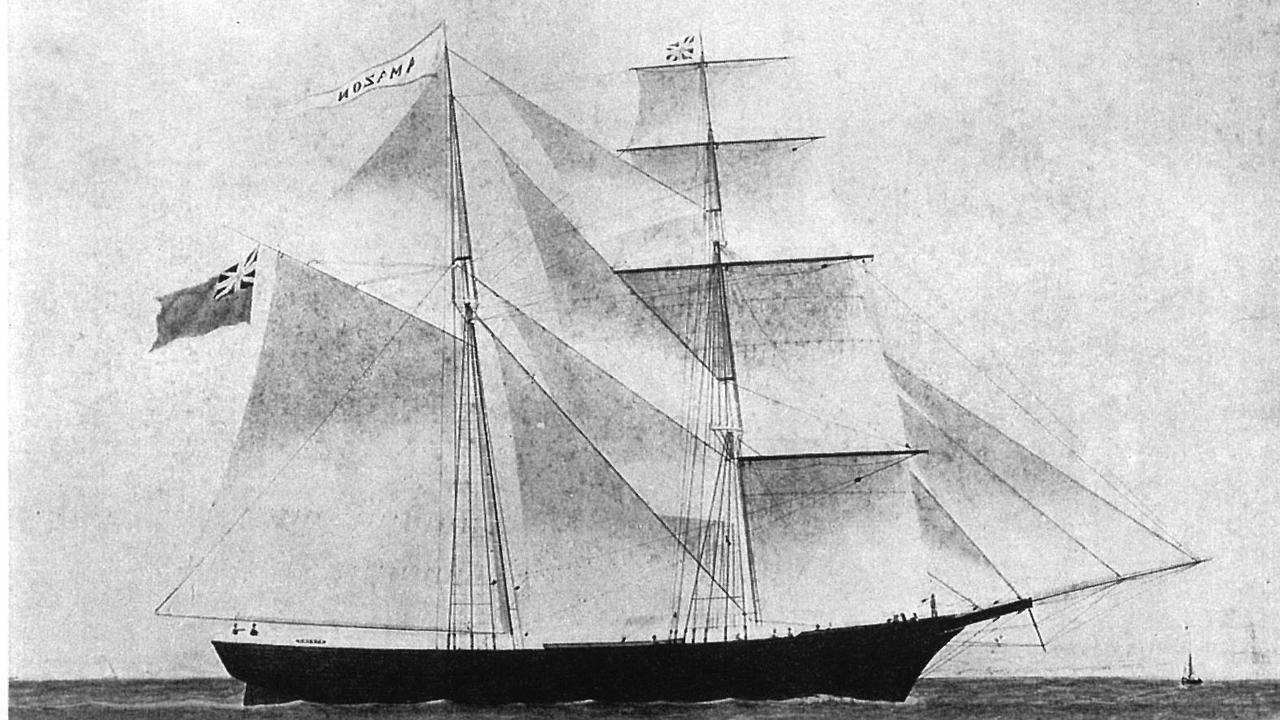Bowled over in Grenada
GRENADA, the best but perhaps most forgotten island in the Caribbean, has shrugged off hurricanes to be set for the 2007 cricket World Cup, writes Kevin Pilley.

ONE week in the eastern Caribbean proved many things. But, above all, it proved that there is indeed a God.
Apart from Freddie Flintoff.
Going to Grenada, the best but perhaps most forgotten island in the Caribbean, gave me the chance to dance with one of my sporting heroes.
It happened in The Dodgy Dock, a bar and restaurant at True Blue Bay on the southern tip of the island.
Great holidays are all about great memories. And I'll never forget the Spice Island. For 20 never-to-be-erased minutes after umpteen strong rum punches, I engaged in synchronised cretinism with one of the finest bowlers of all time. Albeit a Pom and an enemy of Australia.
I danced with Derek Leslie "Deadly" Underwood, the man who bowled us out at The Oval in 1968 in one of the most dramatic Tests in cricket history. Until last year.
The former Kent and England spinner, with 297 Test wickets to his name, was on Grenada to play in his last game, representing Old England in a Virgin Holidays-sponsored match against Old West Indies.
The match was staged to promote the least known of Caribbean islands and the ICC Cricket World Cup, which will be hosted by the West Indies next year.
I was staying in the same hotel – the beachfront Rex Grenadian Resort – as a team captained by Allan Joseph Lamb, including Middlesex coach John Ernest Emburey and newly appointed Surrey coach Alan Raymond Butcher.
I checked in at the same time and saw their passports.
The players presented equipment to the cricket-mad pupils of the Crochu Roman Catholic School and coached and umpired for the local children before the 20-over game at Progress Park in the parish of St Andrew's.
In the interests of Grenada, the Test veterans endured searing heat while suffering hangovers and other age-related problems. Like baldness. And diminished cricketing ability.
The players signed autograph after autograph. Ex-Derbyshire and Glamorgan opening batsman John Morris presented his bat to some kids on the boundary's edge and some of them cried. But no one cried when Old England lost.
Cricket has always been important in the West Indies. But it has taken on a new importance for Grenada which, along with Petite Martinique and Carriacou, forms the Grenadines.
Hosting six matches in the 2007 World Cup at the new Queen's Park National Stadium, built with the help of China, will prove the island is ready to face the future.
Grenada's European history goes back a long way. Columbus first sighted the island in 1498. The British took possession of it in 1783 through the Treaty of Versailles and granted it independence in 1974.
But it was wind that put it on the map. Hurricanes Ivan in September 2004 and Emily in July last year tore through the island leaving many of its 11,000 population homeless, tropical forests flattened and 85 per cent of buildings destroyed.
Ivan was the first hurricane to hit the island in 49 years.
But the recovery program is in full swing, and the island's infrastructure is being rebuilt. A new cruise port is up and running and 80 per cent of the island's hotels are open again.
The Spice Island's famous beaches are being replanted with palm trees. The cricket pitches are also being laid.
The ICC Cricket World Cup final will be played in Barbados on April 28. The Australian team will be based on St Kitts and have their first game against Scotland on March 14.
Grenada expects an influx of 7000 tourists – and the locals can't wait. They want to resume normal business, but they're hoping tourists won't wait until the World Cup to holiday on their island.
"Our basic attractions survived," Edwin, my Grenada Board of Tourism guide informed me. "We still have 40 white beaches and nine black ones, an average temperature of 26C and some of the best diving in the Caribbean. And we are still the sweetest-smelling place on the planet, with more spices per square kilometre than anywhere."
As well as being a huge cricket fan and an indifferent left arm over, Edwin Frank is an expert on nutmeg and its trivia. You can't go to Grenada without talking about 200km/h winds and nutmeg.
Grenada is the world's second largest nutmeg producer, accounting for a third of the world's supply. Laura Herb and Spice Gardens near Perdmontemps in the parish of St David is the place to go to mug up on the aromatic kernel, sniff some cinnamon and fondle some mace.
Cocoa, coffee and cotton were introduced in 1714 and nutmeg in 1843. Having such spices as staples, grown principally by peasant landholders, the island was spared the depression that overtook the sugar-growing islands of the West Indies.
The main Grenadian sightseeing sites are the Concord Waterfalls, Grand Etang National Park with its lake inside a volcano crater, the 18th century Plantation Inn and the River Antoine Rum Distillery.
But everyone eventually gravitates to the bullet holes in the fort overlooking the horseshoe harbour, market square and red-tiled roofs of the capital, St George's.
Fort George was built in 1706 and is now the headquarters of the local police force. But it is infamous for something else: In October, 1983, Grenada was invaded by the US when president Ronald Reagan sent a "non-combatant evacuation force" ostensibly to rescue 600 American students, although the main reason was to stop the growing military influence of the Cubans and Russians.
The troops arrived six days after prime minister Maurice Bishop and part of his Cabinet were executed by Bernard Coard's Stalinist sect.
British prime minister Margaret Thatcher did not agree with the invasion. But later Reagan justified his decision by saying: "You can't make eggnog without nutmeg."
Nutmeg is put on everyone's lips and on virtually everything else in Grenada. And seafood, whether flying fish or conch, is not surprisingly the speciality of the island. You can get other popular dishes like pepper pot and crab backs and spinach at places like Dennis Ross's Tout Bagay on the waterside at the Carenage; The Calabash; the upmarket celebrity haunt of Laluna at Morne Rouge and the superb Water's Edge Restaurant at the Bel Air villa complex overlooking St David's Harbour.
Main courses cost about $25. Worth a visit too, are the island's plentiful rum shacks like Havan Gordon's Trench Town where talk is invariably about cricket and the future.
As well as bad wind. And how to survive it.
If you do not care for floating hotels or expat villa accommodation when your rent goes to Europe rather than remaining in the place you are staying, Grenada is about to start a homestay program. There will be duty-free concessions to induce visitors to taste the real Grenada and stay with Grenadians in their rebuilt homes.
But, either way wherever you stay, if you listen to the locals and indulge in the local activities, a holiday to Grenada does prove so many things.
Such as: The Grenadian welcome is perhaps more personalised, warm and heartfelt than a Barbadian one. And Grenada is perhaps much safer than Jamaica or Trinidad. You can sense as well as see that Grenada attracts only 33,000 European visitors a year compared with Barbados's 240,000.
That is its main attraction: Grenada is the old Caribbean.
Modernisation has only just begun. For obvious reasons. Because of the hurricanes Grenada can never be accused of being over-developed. Or spoilt. It has not yet been ruined by too many rummed-up young men in Union Jack shorts singing Swing Low Sweet Chariot with their Malibu-primed, blonde-out-of-a-bottle partners. It is still respectful of itself as well as others.
Grenada is open for business again and, if it is not quite paradise yet, it is determined to be so again soon.
There are many reasons to go to Grenada – overcrowded Barbados being just one of them.
The friendliest, although maybe the most overlooked of all the Caribbean islands, offers many memorable sights and attractions.
Some go underwater to see them. Some take four-wheel-drive tours. I just sat on a barstool and watched 60-year-old cricket legend Derek Underwood strut his stuff. And then, plucking up courage, joined in.
It was much more exciting and memorable for me than watching Andrew Flintoff have a slog – and then be deified.



